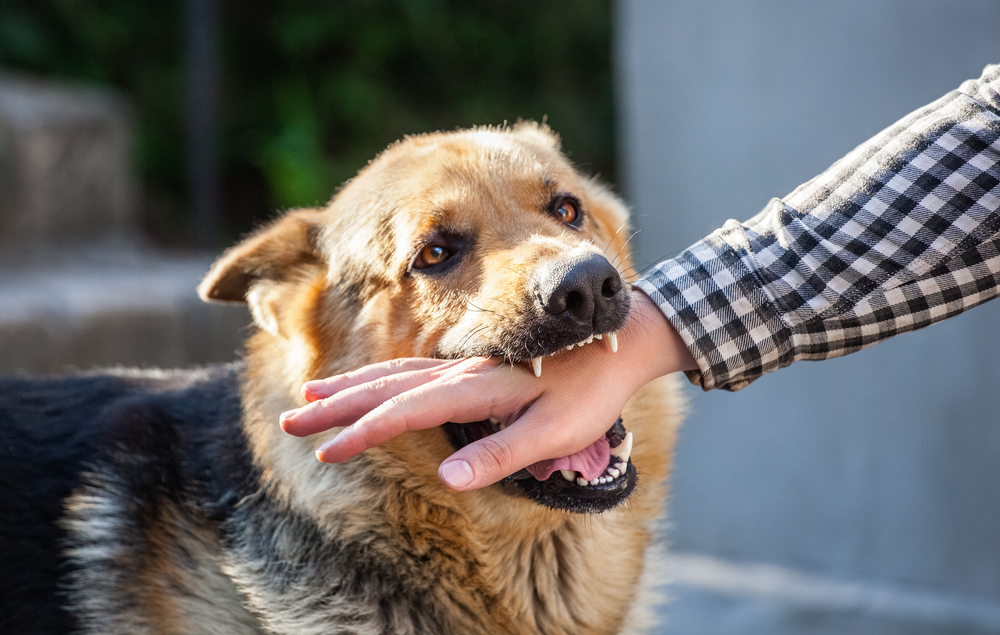
Dog bites are more common than people think. They can happen suddenly and can range from small scratches to serious injuries requiring medical care. When someone is bitten, the immediate concern is treating the wound, but another important question arises. Should the bite be reported?
In Illinois, doctors play a role beyond treatment. They are responsible for reporting dog bite cases to the authorities, which helps track potentially dangerous dogs and ensures the safety of the public. Some may wonder why this reporting is necessary and what happens if a doctor fails to do so. Understanding the laws surrounding dog bite reporting helps victims, doctors, and dog owners know their responsibilities and rights.
The Importance Of Illinois Dog Bite Reporting Laws
When a dog bite happens, it is more than just an injury, it is a public health concern. Dogs, even those that seem healthy, can carry diseases. One of the most serious concerns is rabies, which, though rare, can be deadly. Reporting bites ensures that victims get the care they need, such as a rabies shot, if required.
Tracking dog bite incidents also helps authorities identify patterns. If the same dog has bitten multiple people, action may be needed to prevent further harm. Some dogs may become aggressive due to abuse, poor training, or medical issues. Authorities can investigate these situations and make sure the right measures are in place to protect people and animals.
Doctors are at the front line of this reporting system. They see the injuries, treat the wounds, and have the opportunity to ensure the incident does not go unnoticed. Reporting a dog bite is not only a legal duty, but it is also a way to prevent future harm. In Illinois, the statute of limitations on dog bites is two years. This means victims have two years to initiate legal action from the date of the incident.
Illinois Laws On Mandatory Reporting Of Dog Bites In Illinois
If a dog bites someone in Illinois, it must be reported to local animal control within 24 hours. This rule helps protect people and track any possible risks, like rabies. The Illinois Animal Control Act establishes regulations for managing animals, ensuring public safety, and holding owners accountable for their pets’ behavior.
Doctors and veterinarians who treat dog bite victims are required to report the incident. Once a bite is reported, the Administrator or Deputy Administrator of animal control must ensure the dog is confined under the observation of a licensed veterinarian for at least 10 days. If the dog has up-to-date rabies shots, it might be allowed to stay at home during this time. Otherwise, it could be kept at a vet clinic.
During the observation period, the dog’s owner cannot sell, give away, or put the dog down. Once the veterinarian confirms the dog is safe, it can return to normal life. However, if rabies is found, health officials will take further action to protect the community.
Illinois follows a strict liability policy for dog bites, meaning the owner is responsible for any injuries caused by their dog, regardless of prior behavior. Victims can seek compensation for medical expenses, lost wages, and emotional distress.
Illinois dog bite reporting laws are to keep people and pets safe while allowing responsible owners to care for their animals. If you’re ever involved in a dog bite case, it’s a good idea to check with local officials or a personal injury attorney to understand your rights.

What Happens If a Doctor Fails to Report a Dog Bite?
When a doctor treats a dog bite victim, they are required to report it to the local authorities. If they fail to do so, it can have serious consequences. While the legal requirements exist, the law does not specify explicit penalties for healthcare providers who fail to report a dog bite.
Dog bites are not just simple wounds. They carry risks, including infections and the possibility of rabies. When a bite goes unreported, the authorities cannot monitor the dog or ensure it is properly observed for health risks.
A doctor’s failure to report could also mean the victim does not receive the proper guidance on what to do next. They may not know the legal steps to take, or even whether the dog’s vaccination records need checking. In some cases, an unreported bite could allow a dangerous animal to remain unchecked, increasing the chance of future attacks.
There are also legal consequences. Medical professionals must comply with reporting laws, and ignoring them could result in penalties or professional repercussions. This is not just about following rules, it is about protecting the safety of individuals and the larger community.
Public Health and Safety: Why Reporting Matters
Reporting incidents related to public health and safety is crucial. It ensures accountability, protects individuals from potential harm, and helps authorities take preventive measures. When a dog bite occurs, for example, reporting it may seem like an unnecessary step, especially if the dog bite injury appears minor. However, failing to report can lead to serious consequences.
For example, a single unreported bite might be followed by another, potentially more severe one. Local authorities and health officials rely on reports to track patterns of dangerous behavior, enforce regulations, and provide medical guidance.
Communities benefit from a system that encourages transparency. When reports are filed, officials can determine if certain dogs pose a repeated risk, leading to actions that may prevent future attacks. Additionally, reporting ensures the victim receives appropriate medical care, especially if the dog’s vaccination status is unknown. Rabies and infections are serious health concerns, and documentation of the incident aids healthcare providers in determining necessary treatments.
A strong reporting culture also strengthens local laws and policies. If authorities see an increase in certain types of incidents, such as dog bites, they may implement stricter regulations regarding pet ownership, leash laws, or mandatory training. Each report contributes to a safer environment for everyone.
Steps a Victim Should Take After a Dog Bite
When a person is bitten by a dog, immediate action is necessary. The first step is to assess the injury. Even minor wounds require proper cleaning to prevent infection. Running water over the bite and applying soap helps remove bacteria. If the skin is broken, applying an antiseptic and covering the wound with a clean bandage is recommended.
Seeking medical attention is vital. Some bites may look harmless but can lead to complications. A healthcare provider can evaluate the risk of infection and determine if further treatment, like antibiotics or a tetanus shot, is necessary. Rabies exposure is another critical concern. If the dog’s vaccination history is unknown, a doctor may recommend post-exposure prophylaxis.
The victim should also gather information about the dog and its owner. Knowing whether the dog is vaccinated makes a significant difference in medical decisions. If possible, identifying the owner and obtaining contact information helps with reporting the incident. If the dog is a stray, noting its description and the location of the attack is important.
Once immediate concerns are addressed, reporting the bite to local authorities or animal control should be a priority. This step ensures the incident is documented and helps prevent further attacks. In many places, reporting also initiates an investigation to determine whether the dog poses a continuing threat.
Finally, victims may consider seeking legal advice if the injury is severe or if medical costs become burdensome. Some laws hold dog owners responsible for damages caused by their pets, and compensation may be available.
Victims should seek legal advice if the injury is severe or if medical costs become burdensome. Some laws hold dog owners responsible for damages caused by their pets, and compensation may be available.
Legal Consequences for Animal Bites
What happens when a dog bites someone depends on various factors. Dog owners have a responsibility to ensure their pets do not harm others. When a bite is reported, legal consequences depend on various factors, such as the severity of the injury, the dog’s history, and local laws.
In many areas, a reported bite is followed by an investigation. Authorities may require proof of vaccination, especially for rabies. If the dog’s vaccinations are not up to date, the owner might face penalties or be required to quarantine the dog for observation. This precaution ensures the animal does not pose a health risk.
If the bite results in significant injury, the owner may be held liable for medical bills. Some jurisdictions impose strict liability, meaning the owner is responsible regardless of whether the dog has shown aggression before. Other places follow a “one-bite rule,” where the owner is only liable if they were aware of the dog’s tendency to bite.
Repeat offenses often lead to harsher consequences. If a dog has previously bitten someone, authorities may mandate behavioral assessments, training, or even removal from the owner’s care. In extreme cases, euthanasia may be considered if the dog is deemed a serious public risk.
Owners can also face criminal charges under certain circumstances. According to the Illinois Animal Control Act, if an owner fails to restrain a known aggressive dog, penalties may include fines or jail time. Public safety is a priority, and legal actions serve as deterrents to irresponsible pet ownership.

How Dog Bite Laws Helps Dog Bite Victims
Doctors reporting dog bites in Illinois play a crucial role in tracking incidents, ensuring victims receive proper medical care, and helping authorities address public safety concerns. Illinois law requires them to report bites, helping track potentially dangerous biting animals and ensuring victims get the right medical and legal support. However, in some cases, you need the services of an experienced attorney who can guide you through the complex legal landscape of filing a personal injury claim or pursuing other types of legal actions.
At Dog Bite Laws, we offer additional legal guidance, helping people navigate the complexities of dog bite laws in Illinois. To learn more, you can schedule a consultation with our Illinois dog bite attorney.


